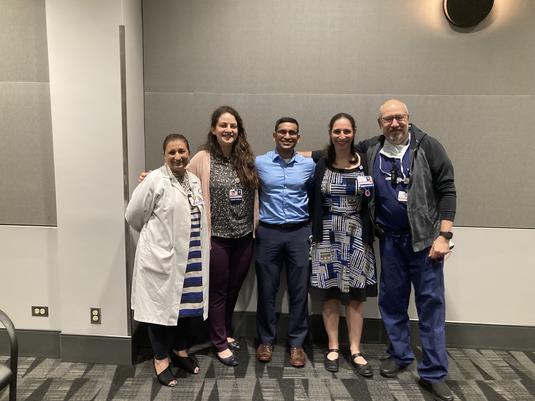Elevating Pediatric Care through Research
A major goal of the Children's Hospital at Sinai Pediatric Residency Training Program is to promote scholarly activity. To that end, this activity is incorporated into the resident experience.
All residents must participate in a scholarly activity during their training. In an effort to meet the varying scholarly activity interests, needs, and capabilities of individual residents, research projects may involve basic or clinical research, case reviews or epidemiological studies, quality improvement or performance improvement projects.
Residents learn to do high quality basic or clinical research through dedicated lecture series, direct exposure to faculty with research experience, and one-on-one consultation with an epidemiologist / statistician. Residents gain insight into evidence-based medicine and learn to critically evaluate literature. The Scholarly Activity Program aims to provide residents with an appreciation for high quality research, basic concepts of research design and statistics, and the opportunity to experience an oral and written presentation of biomedical information.
The culmination of the Program is the annual Scholarly Activity Day in the fall of the PL-3 year, when residents present the results of their projects. An award is presented to the highest rated project as determined by the Scholarly Activity Committee. Prior projects have been presented at national meetings (such as American Thoracic Society and North American Society of Pediatric Gastroenterology, Hepatology, and Nutrition) and have resulted in publications in leading peer-reviewed journals. The program covers airfare, poster preparation, and cost of registration up to $1000.
